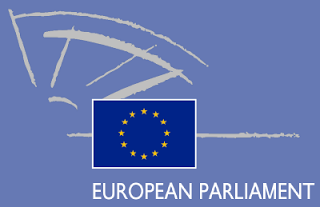IGCAT fully endorses that the European Parliament’s Committee on Culture and Education has adopted an own-initiative report by Santiago FISAS AYXELA (EPP, ES) on European gastronomic heritage: cultural and educational aspects. The report outlines both educational aspects and cultural aspects. This is a timely initiative and one that signals the validity of IGCAT’s aims and objectives.
Educational aspects: Members stressed that the present and future health and wellbeing of the population is determined by diet and the environment and hence by farming, fishing and livestock breeding methods. It is for this reason that they asked the Member States to include the study and sensory experience of food, nutritional health and dietary habits, including historical, geographical, cultural and experiential aspects, in school education from early childhood as a means of improving the health and wellbeing of the population, the quality of food and respect for the environment.
The Commission and the Member States are called upon to:
- encourage projects which involve exchanges of information and practices in the area of nutrition, food and gastronomies, for example as part of the Comenius (school education) strand of the Erasmus+ programme;
- promote intercultural exchange in sectors related to catering, food and gastronomy, taking advantage of the opportunities offered by the Erasmus+ programme for high-quality training, mobility and apprenticeships for learners and professionals;
- consider stricter control of content and advertising dealing with food products, especially in terms of nutrition;
- stress the importance of training for gastronomy professionals highlighting ‘homemade’, local and varied produce;
- exchange knowledge and best practices concerning gastronomy-related activities in education.
Cultural aspects: gastronomy is the combination of knowledge, experience, art and craft, which provides a healthy and pleasurable eating experience. Gastronomy forms part of the EU identity and is an essential component of the European cultural heritage and of the cultural heritage of the Member States
Members welcomed initiatives to promote Europe’s gastronomic heritage, such as local and regional gastronomic fairs and festivals as well as the three EU schemes relating to geographical indications and traditional specialities, known as protected designation of origin (PDO), protected geographical indication (PGI), and traditional specialities guaranteed (TSG).
The Commission and the Member States are urged to:
- develop the cultural aspects of gastronomy and to foster eating habits which maintain consumer health, further the exchange and sharing of cultures and promote the regions, while at the same time retaining the pleasure associated with eating, conviviality and sociability;
- support initiatives related to agri-tourism that foster knowledge of the cultural and landscape heritage, offer regional support and promote rural development;
- study the impact of the laws they adopt on the capacity, diversity and quality of food production in the EU and to take measures to combat the counterfeiting of products;
- support initiatives to maintain the high quality, diversity, heterogeneity and singularity of local, regional and national traditional products in order to combat homogenisation, which in the long term will diminish Europe’s gastronomic heritage;
- make the importance of supporting sustainable and varied European food production of high quality and in sufficient quantity an integral part of their deliberations on food policy, with a view to sustaining European culinary diversity.

